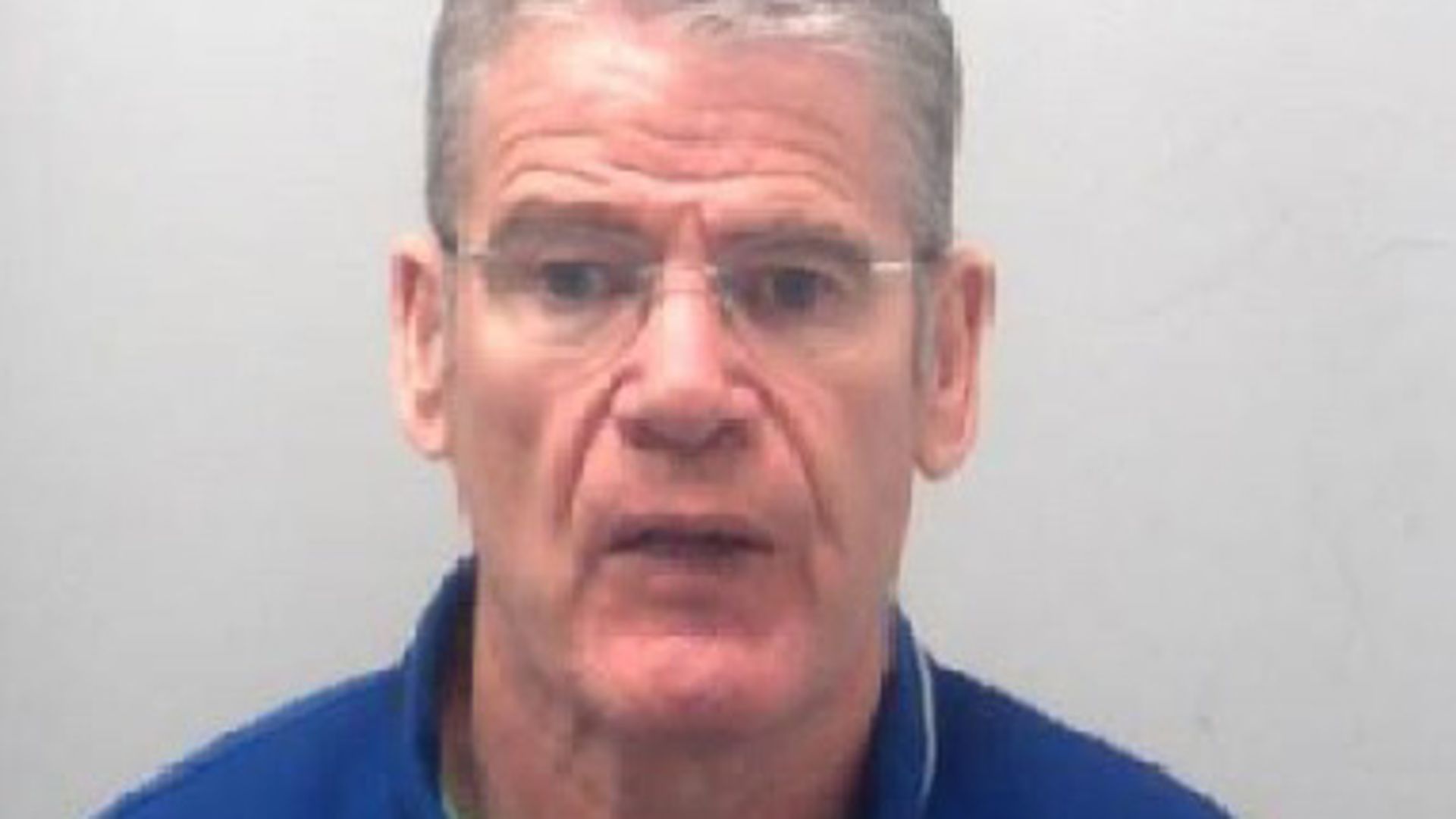A senior figure in the Kinahan organised crime group has been jailed for six years for orchestrating an arms cache plot while in prison to dupe authorities into awarding him a lighter sentence.
Thomas Kavanagh, 57, had wanted to lead the National Crime Agency (NCA) to a buried stash of 11 “fearsome” weapons in an attempt to influence sentencing in a multimillion-pound drug smuggling case.
Kavanagh, a UK boss in the gang, provided information to the NCA which resulted in them finding two holdalls in a field in Newry, Northern Ireland.
The bags contained what the judge called “fearsome” weapons – seven machine guns, three automatic handguns, an assault rifle and ammunition.
Kavanagh, from Dublin, had begun putting the conspiracy in motion in 2019 while in prison on remand over serious drug charges.
Those charges related to smuggling “multiple kilos” of cocaine and cannabis into the UK for which he was sentenced to 21 years in prison in March 2022.
The NCA said Kavanagh had hoped – in hiding and then revealing the location of the weapons – to “fool” the agency into doing a deal so he could negotiate a lighter sentence.
1,100 inmates set for early release – as review considers tougher punishments outside prison
Man found guilty of raping and killing NHS worker Natalie Shotter in London park
Wife of Tory councillor jailed for 31 months over social media post stirring up racial hatred
While behind bars, Kavanagh enlisted the help of his brother-in-law, 44-year-old Liam Byrne, and associate Shaun Kent, 38, in the plan.
Between January 2020 and June 2021, the defendants agreed to “acquire as many arms as possible” from the UK, Netherlands, the Republic of Ireland and Northern Ireland.
Through Thomas Kavanagh’s legal representatives, the NCA was provided with a map, leading investigators to a location near Newry.
But the plot was foiled after the NCA uncovered incriminating messages on encrypted EncroChat, which had been cracked by French counterparts.
In the messages, using nicknames and slang terms for what was being acquired, they discussed how they could get hold of the weapons and how they could get them buried in the location set out by Kavanagh.
The trio admitted the conspiracy last month ahead of their planned trial at the Old Bailey.
Kavanagh, from Tamworth, Byrne, from Dublin, and Kent, from Liverpool, all admitted two charges of conspiring to possess a prohibited weapon and two charges of conspiring to possess prohibited ammunition between 9 January 2020 and 3 June 2021.
Read more:
Bianca Gascoigne says she was groomed by Al Fayed
Water companies seek even higher bill increases
Fraud probe into £112m Unite hotel complex
Kent and Kavanagh also admitted conspiring with others to pervert the court of justice.
Kent was handed a six-year prison sentence while Byrne – who fled to Majorca after the conspiracy but was arrested in June 2023 – was jailed for five years.
All three defendants appeared via video link from HMP Belmarsh for the two-day sentencing at the Old Bailey.
Be the first to get Breaking News
Install the Sky News app for free
Kavanagh will serve his sentence consecutively to his jail time for previous offending.
But Kent has already served more days on remand than the sentence imposed on Tuesday, and therefore is expected to be released from prison.
Keep up with all the latest news from the UK and around the world by following Sky News
Prosecutor Tom Forster KC said on the first day of sentencing: “Put shortly, Thomas Kavanagh’s plan, with which the other defendants agreed and put into practice, was to assemble as many weapons and ammunition as possible, acquiring the arms from various criminals, then conceal them and finally reveal their whereabouts to the NCA.
“In this way, the conspirators intended to fool the authorities into concluding the assistance was genuine, when it was not, so that Thomas Kavanagh would be rewarded for helping the authorities to recover dangerous weapons by way of a considerable discount from his sentence.
“However, the true position was that he and his co-conspirators did not intend to provide any real assistance because they had orchestrated the acquisition of weapons and ammunition through their own serious criminality. It was a ‘put up job’.”







